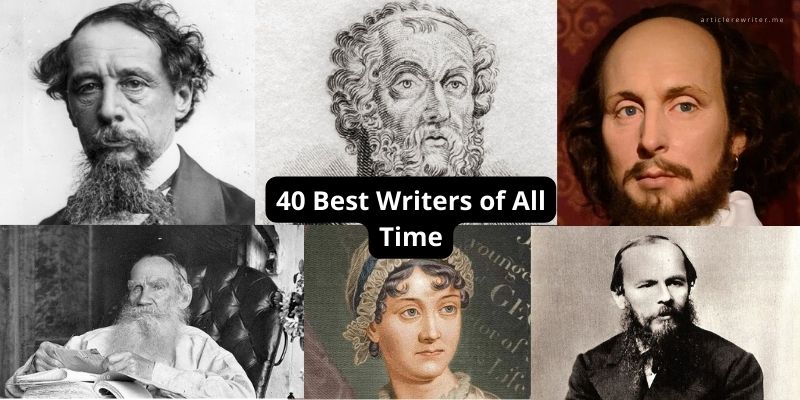Who do you think are the Best Writers of All Time? Throughout the annals of human history, there have been individuals whose words have transcended time and culture, leaving an indelible mark on the world. The art of writing is a powerful medium, capable of conveying profound ideas, emotions, and stories that can resonate across generations.
The works of the 40 writers mentioned in this article have continued to inspire, challenge, and entertain readers across the globe. They have given voice to the human experience, explored the depths of the human soul, and shared stories that will continue to resonate for generations to come.
Also read: Apps For Writing – 15 Essential and Helpful Tools for Writers
40 Best Writers of All Time
1. Homer (c. 8th century BCE):
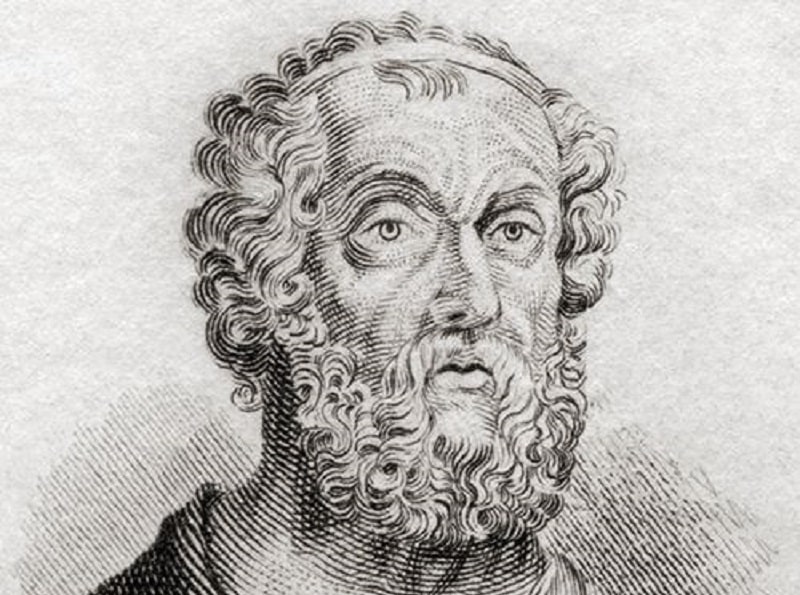
Homer is one of the best writers of all time and a legendary ancient Greek poet traditionally attributed to the composition of two of the most significant epic poems of ancient Greece: the Iliad and the Odyssey. These works are considered some of the earliest and most important works of Western literature. “The Iliad” and “The Odyssey.” His work laid the foundation for Western literature and explored themes of heroism, adventure, and the human condition.
The exact identity and historical existence of Homer are the subject of debate among scholars. It is widely believed that he lived around the 8th century BCE, but there is no definitive evidence about his life. In fact, some scholars even suggest that “Homer” might have been a collective name for a group of poets rather than a single individual.
The “Iliad” is an epic poem that focuses on the Trojan War and the Greek hero Achilles, while the “Odyssey” tells the story of the adventures of Odysseus as he attempts to return home after the war. These works are written in a poetic form called dactylic hexameter and are fundamental to the understanding of ancient Greek culture and mythology.
2. William Shakespeare (1564-1616):

He is one of the best writers of all time and lived between (1564-1616). He was an English playwright, poet, and actor widely regarded as one of the greatest writers in the English language and one of the most important figures in world literature. He is often referred to simply as “Shakespeare.”. He was often referred to as the “Bard of Avon,” William Shakespeare is one of the most celebrated playwrights and poets in the English language. His plays, such as “Hamlet,” “Romeo and Juliet,” and “Macbeth,” remain iconic and have been translated into numerous languages.
Also read: The Importance of Defining Audience in Content Writing
3. Leo Tolstoy (1828-1910):
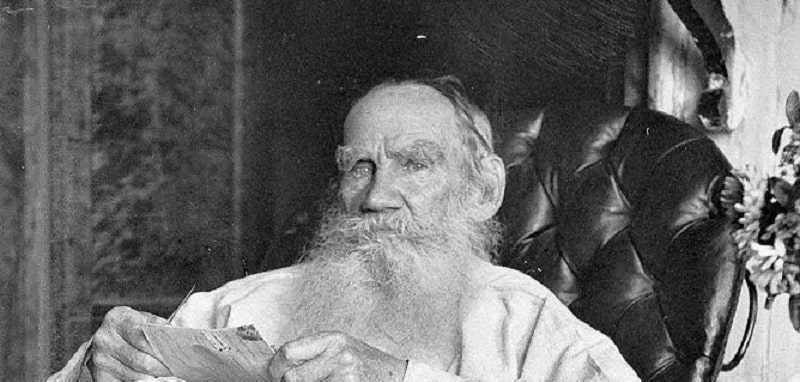
Leo lived between (1828-1910). He was a Russian writer and philosopher who is widely regarded as one of the greatest novelists of all time. He is best known for his epic novels “War and Peace” and “Anna Karenina,” both of which are considered masterpieces of world literature. Tolstoy’s works are known for their exploration of complex themes, deep character development, and intricate narrative structures.
Tolstoy was born into a noble family in Russia and led a privileged life in his early years. He served in the military and later embarked on a literary career. His experiences in the military and his observations of Russian society and culture greatly influenced his writing. Throughout his life, Tolstoy went through a profound moral and spiritual transformation, leading him to reject many aspects of his aristocratic lifestyle and embrace a form of Christian pacifism and anarchist philosophy.
Tolstoy’s later works, such as “The Kingdom of God Is Within You” and “Resurrection,” reflect his philosophical beliefs and critique of the established social and political systems of his time. He advocated for nonviolent resistance and the rejection of private property and state authority.
4. Jane Austen (1775-1817):
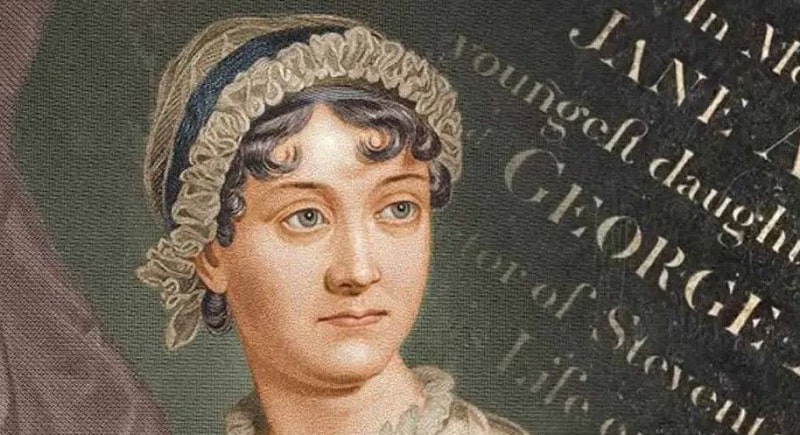
Jane was an English novelist and one of the best writers of all time. She was known for her significant contributions to the literary world, particularly in the genre of the novel. She is best known for her six major novels, which have become classics of English literature. Jane Austen’s works, including “Pride and Prejudice” and “Sense and Sensibility,” continue to be cherished by readers worldwide.
Austen’s works primarily revolve around the themes of love, marriage, class, and social manners in the early 19th-century English society.
Also read: Make Money Writing – 15 Freelancing Websites for Freelancers
5. Charles Dickens (1812-1870):
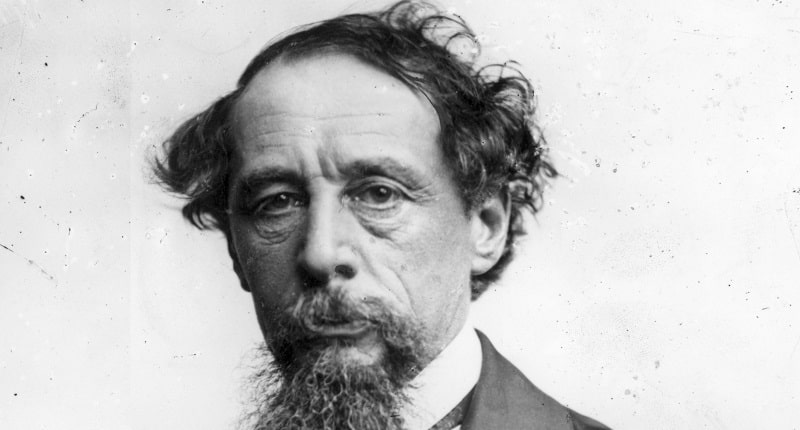
Charles Dickens (1812-1870) was a famous English writer and social critic of the 19th century. He is one of the most renowned novelists in the history of English literature and is known for his vivid characters, engaging storytelling, and his ability to capture the social and moral issues of his time.
Some of his most famous works include:
- Oliver Twist (1837-1839): it tells the story of a young orphan named Oliver Twist and his struggles to survive in the harsh world of Victorian England.
- David Copperfield (1849-1850): This semi-autobiographical novel follows the life and adventures of the titular character, David Copperfield, and is considered one of Dickens’ most personal works.
- Great Expectations (1860-1861): This novel tells the story of Pip, an orphan who comes into a sudden fortune and explores themes of class, ambition, and personal growth.
6. Fyodor Dostoevsky (1821-1881):
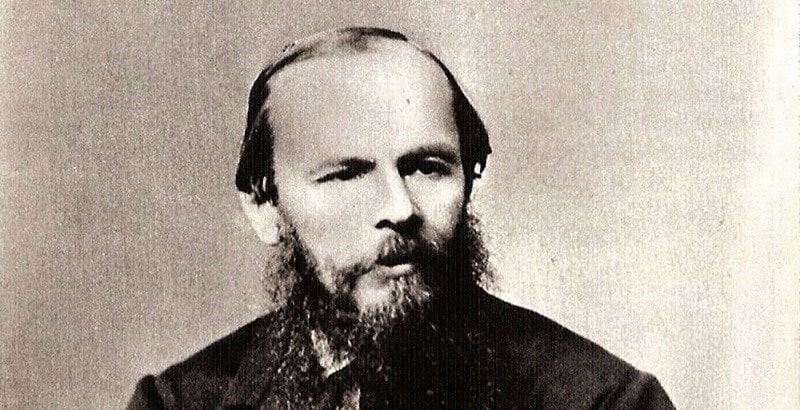
Fyodor was one of the best writers of all time and a Russian novelist and philosopher born on November 11, 1821, in Moscow, Russia, and he passed away on February 9, 1881, in St. Petersburg, Russia. He is considered one of the most influential and renowned writers in world literature, particularly known for his exploration of the human psyche, morality, and the complexities of the human condition.
Also read: 10 Top Resume Writing Service Platforms
7. George Orwell (1903-1950):
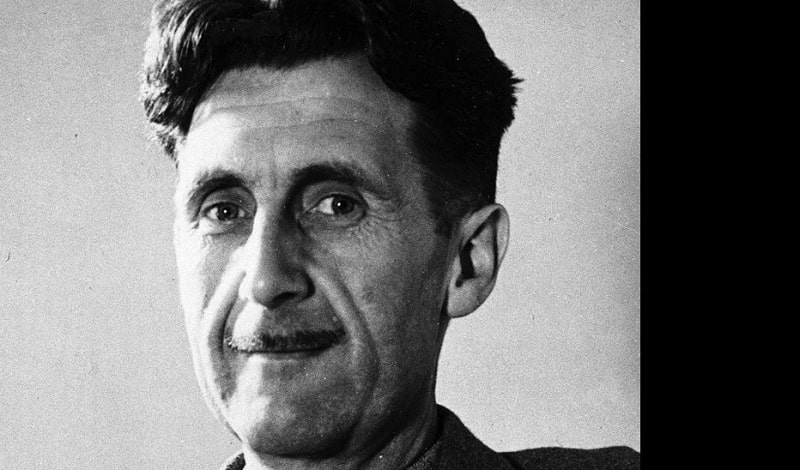
George Orwell’s real name was Eric Arthur Blair. He was a British novelist, essayist, journalist, and critic. He was born on June 25, 1903, in Motihari, India, and died on January 21, 1950, in London, England. Orwell is best known for his works of dystopian fiction, particularly the novels “Nineteen Eighty-Four” and “Animal Farm,” which have become classics of 20th-century literature.
Orwell’s writing often explored themes related to totalitarianism, political oppression, and the dangers of propaganda and censorship. “Nineteen Eighty-Four,” published in 1949, introduced concepts such as Big Brother, thoughtcrime, and Newspeak, and it depicted a nightmarish vision of a future society characterized by surveillance, thought control, and the suppression of individual freedom. “Animal Farm,” published in 1945, is an allegorical novella that uses a group of farm animals to satirize the events leading up to the Russian Revolution and the subsequent Stalinist regime.
8. Virginia Woolf (1882-1941):
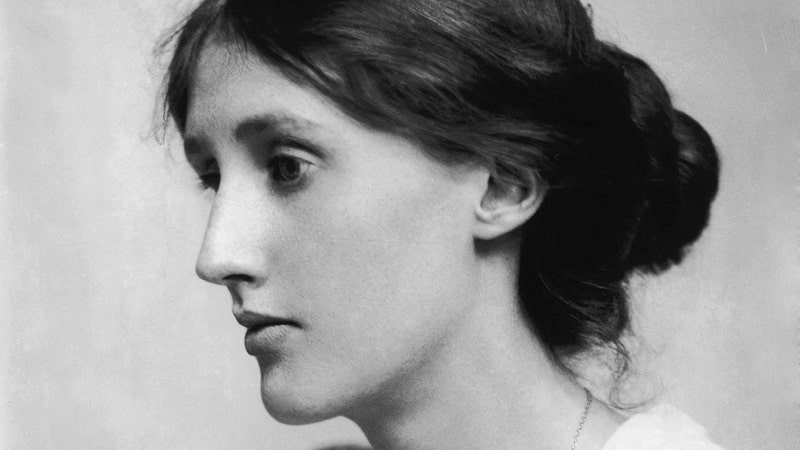
Virginia Woolf is celebrated for her contributions to modernist literature. Her novels, including “To the Lighthouse” and “Mrs. Dalloway,” exhibit her innovative narrative techniques and exploration of the inner lives of her characters.
Virginia Woolf (1882-1941) was one of the Best Writers of All Time and a prominent British writer. She was a key figure in the modernist literary movement of the early 20th century. She contributed largely to fiction, essays, and feminist literature.
Some of her most notable works include:
- Mrs. Dalloway (1925): The novel follows a day in the life of Clarissa Dalloway, an upper-class woman in post-World War I London. The novel is renowned for its stream-of-consciousness narrative style and its exploration of the thoughts and feelings of its characters.
- To the Lighthouse (1927): The novel is considered one of Woolf’s masterpieces. It delves into the thoughts and emotions of the Ramsay family during their visits to the Isle of Skye in Scotland. It’s known for its introspective and experimental narrative style.
- Orlando (1928): the novel that spans several centuries and features a protagonist who changes gender over time, exploring themes of identity and transformation.
- A Room of One’s Own (1929): A seminal feminist essay in which Woolf argues that women need financial independence and a space of their own to fully engage in writing and intellectual pursuits.
- The Waves (1931): A poetic and experimental novel that follows the lives of six characters through their inner monologues and reflections.
Also read: How to Improve Your Writing Skills As A Blogger
9. Mark Twain (1835-1910):
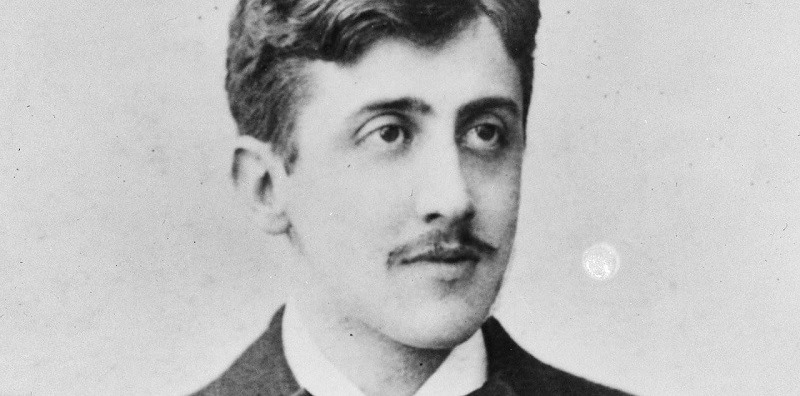
Mark Twain’s real name was Samuel Langhorne Clemens. He was one of America’s most celebrated and influential authors of the 19th century. Born on November 30, 1835, in Florida, Missouri, and passing away on April 21, 1910, in Redding, Connecticut, he left an indelible mark on American literature and culture.
Tow of his best works include “The Adventures of Tom Sawyer” and “Adventures of Huckleberry Finn.” These novels are not only timeless classics but also significant contributions to the development of American literature. Twain’s writing was characterized by its humor, vivid descriptions, and keen observations of human nature.
10. James Joyce (1882-1941):
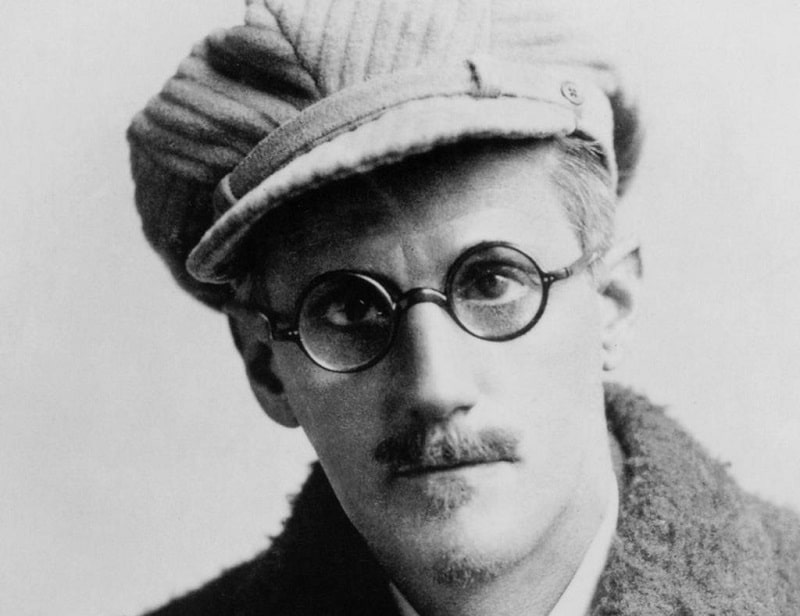
James Joyce was born on February 2, 1882, in Dublin, Ireland. He was an Irish novelist and one of the most influential and celebrated literary figures of the 20th century. He is best known for his groundbreaking and innovative works of fiction, particularly “Ulysses” and “A Portrait of the Artist as a Young Man.”
Joyce’s early works include “Dubliners” (1914), a collection of short stories that provides a vivid portrait of Dublin and its residents, and “A Portrait of the Artist as a Young Man” (1916), was a semi-autobiographical novel that explores the development of an artist’s consciousness.
11. Gabriel García Márquez (1927-2014):
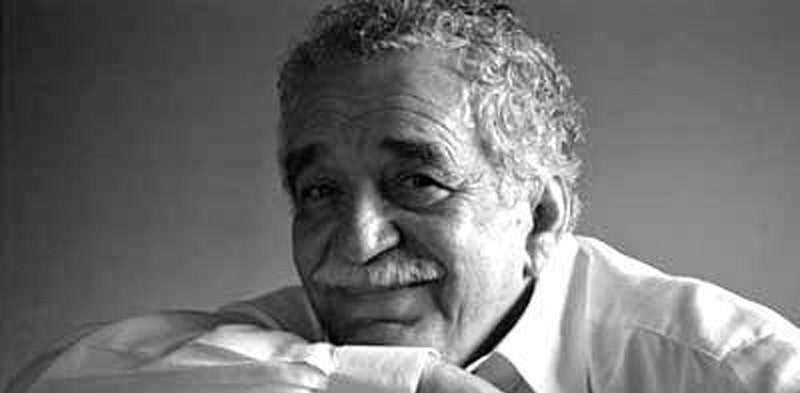
Gabriel García Márquez (1927-2014) was a Colombian novelist, short story writer, and journalist who is widely regarded as one of the most significant authors of the 20th century. He is best known for his works of magical realism, a literary style that combines realistic narratives with elements of fantasy and the supernatural.
His most famous work is “One Hundred Years of Solitude” (Cien años de soledad), published in 1967. Te novel is considered a masterpiece of world literature and tells the story of the Buendía family over several generations in the fictional town of Macondo.
He also wrote other notable works, including “Love in the Time of Cholera” (El amor en los tiempos del cólera) and “Chronicle of a Death Foretold” (Crónica de una muerte anunciada), among others.
Also read: Is Paid Online Writing Jobs Legitimate
12. Franz Kafka (1883-1924):
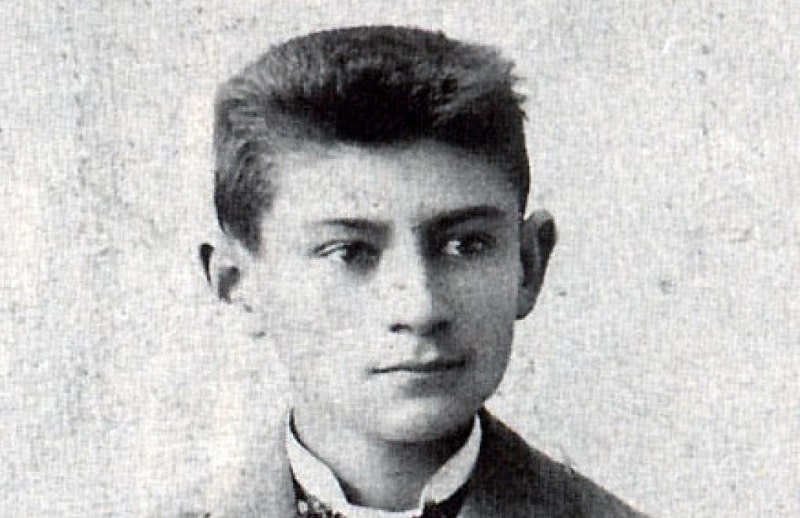
Franz Kafka was a German-speaking Bohemian writer of novels and short stories and one of the best writers of all time. He was born in Prague, which was then part of the Austro-Hungarian Empire and is now in the Czech Republic. Some of his work explored themes of alienation, absurdity, and the individual’s struggle against bureaucratic and oppressive systems.
Some of his most famous works include:
- “The Metamorphosis” (1915): it tells the story of Gregor Samsa, who wakes up one morning to find himself transformed into a giant insect. The story explores themes of isolation and the dehumanizing effects of modern society.
- “The Trial” (1925, published posthumously): it follows the bizarre and surreal trial of Josef K., who is arrested and put on trial for a crime that is never disclosed to him. It is a complex exploration of the individual’s powerlessness in the face of an opaque and oppressive legal system.
- “The Castle” (1926, also published posthumously): it tells the story of a man named K., who arrives in a remote village and tries to gain access to the mysterious castle that dominates the town. It is a bleak and surreal portrayal of bureaucracy and the difficulty of navigating complex institutions.
13. Emily Brontë (1818-1848):
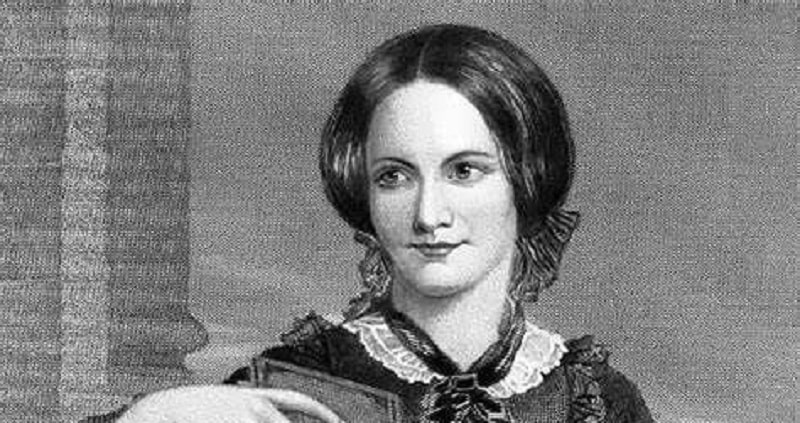
She was an English novelist and poet, best known for her only novel, Wuthering Heights. She was born on July 30, 1818, in Thornton, West Yorkshire, England, and was the fifth of six children in the Brontë family. Emily and her siblings, including Charlotte Brontë and Anne Brontë, are famous for their contributions to English literature.
“Wuthering Heights” was one of her iconic book, published in 1847 under the pseudonym Ellis Bell. The novel is a dark and passionate tale of love and revenge set in the rugged moorlands of Yorkshire. It is now considered a classic of English literature and is known for its complex characters, gothic atmosphere, and exploration of themes such as love, cruelty, and the supernatural.
14. Albert Camus (1913-1960):
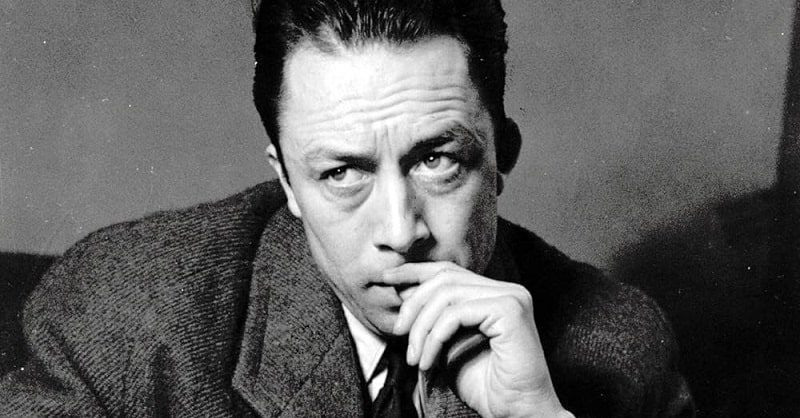
He was a French-Algerian philosopher, author, and journalist who is best known for his contributions to existentialism and his works of literature. He was born in Mondovi, French Algeria, and later moved to France. His ideas and writings had a significant impact on 20th-century literature and philosophy.
Camus is perhaps most famous for his novels and essays, including:
- “The Stranger” (L’Étranger) – A novel that tells the story of Meursault, an emotionally detached and morally indifferent man who commits a senseless act of violence. The book explores themes of alienation and the absurdity of life.
- “The Myth of Sisyphus” (Le Mythe de Sisyphe) – This philosophical essay presents the idea of the absurd, arguing that the human quest for meaning is in conflict with the apparent meaninglessness of the universe. Camus uses the myth of Sisyphus, condemned to push a boulder up a hill for eternity, as a metaphor for the human condition.
15. Toni Morrison (1931-2019):
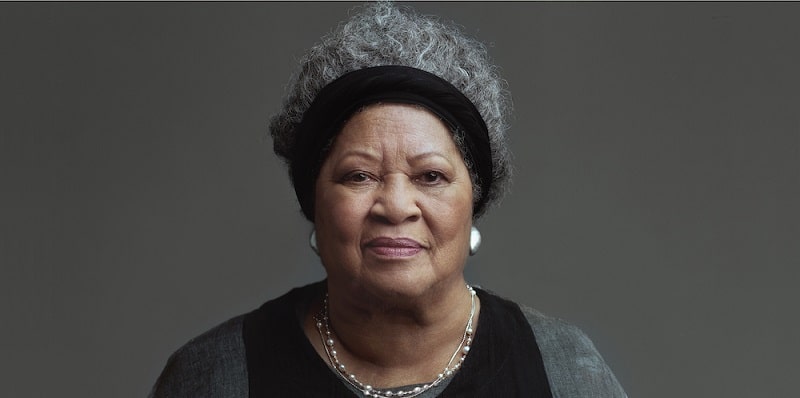
Toni Morrison’s real name is Chloe Anthony Wofford Morrison. She was a renowned American novelist, essayist, editor, and professor. She was born on February 18, 1931, in Lorain, Ohio, and passed away on August 5, 2019. She contributed to the American literature, particularly for her exploration of African American experiences, identity, and history.
Some of her most notable works include:
- “Beloved” (1987): The novel won the Pulitzer Prize for Fiction and is considered one of Morrison’s most significant works. It deals with the legacy of slavery in the United States and the haunting effects it has on the lives of African Americans.
- “Song of Solomon” (1977): it explores themes of family, heritage, and identity within the context of the African American experience.
- “The Bluest Eye” (1970): it examines issues of beauty, race, and identity through the eyes of a young African American girl.
Also read: 15 Creative Writing Techniques
16. Maya Angelou (1928-2014):

Maya was an American author, poet, and civil rights activist. She is best known for her autobiographical work, “I Know Why the Caged Bird Sings,” which was published in 1969 and is the first in a series of seven autobiographical books. This book, in particular, covers her childhood and adolescence, detailing her experiences with racism, sexual abuse, and the struggle for identity.
Angelou’s writing is celebrated for its powerful and evocative style, as well as its exploration of themes such as identity, race, and the human spirit. Her work has been highly influential, and she is considered one of the most significant and respected African American writers of the 20th century.
17. Agatha Christie (1890-1976):
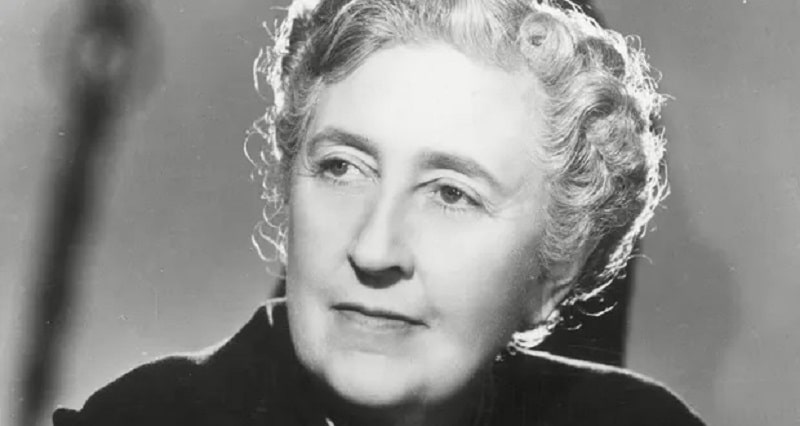
Agatha Christie was a renowned British author best known for her works of detective fiction. She is often referred to as the “Queen of Mystery” and is one of the most famous and prolific writers in the genre. Her writing career spanned over half a century, and her works have been translated into numerous languages and sold millions of copies worldwide.
Agatha Christie’s most famous creations are the fictional detectives Hercule Poirot and Miss Marple. Hercule Poirot, a Belgian detective with a meticulous and methodical approach to solving crimes, while Miss Marple, an elderly amateur sleuth, uses her astute observations and knowledge of human nature to unravel mysteries. Some of her most famous works featuring these detectives include “Murder on the Orient Express” (featuring Poirot) and “The Murder at the Vicarage” (featuring Miss Marple).
18. William Faulkner (1897-1962):
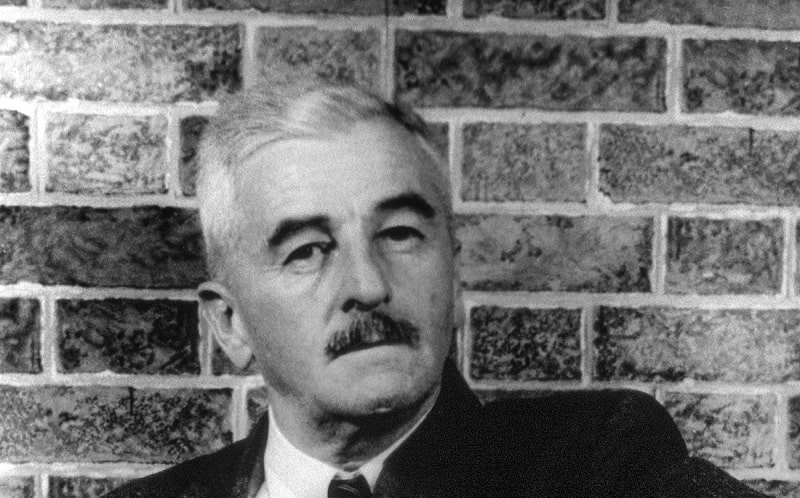
William Faulkner (1897-1962) was a prominent American author and one of the most celebrated figures in 20th-century American literature. He is best known for his novels and short stories that often explored the complexities of the American South, particularly the fictional Yoknapatawpha County, a setting he used in many of his works.
Faulkner’s writing is noted for its intricate narrative structure, stream-of-consciousness style, and its deep exploration of themes related to the human condition, race, class, and the legacy of the American South. Some of his most famous works include “The Sound and the Fury,” “As I Lay Dying,” “Light in August,” and “Absalom, Absalom!” These novels are known for their complex characters and innovative narrative techniques.
19. Ernest Hemingway (1899-1961):
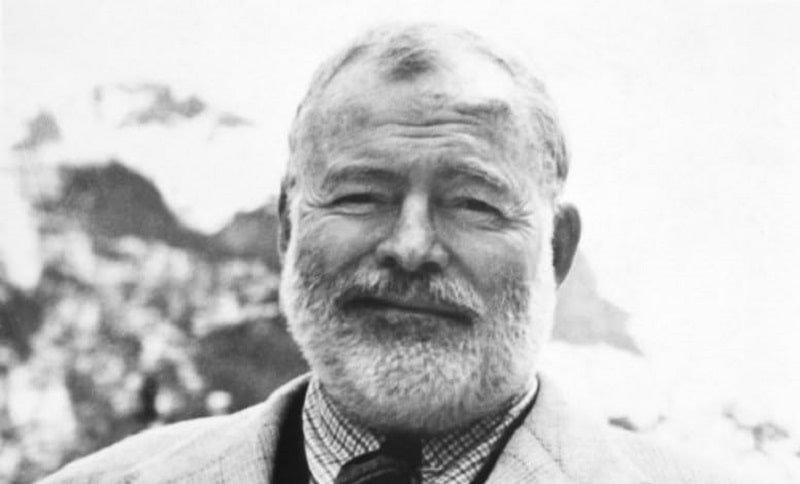
Ernest was an American novelist and short story writer who is widely regarded as one of the most influential and celebrated authors of the 20th century. He is known for his distinctive writing style, characterized by concise and economical prose, as well as his focus on themes such as war, love, masculinity, and the human condition.
Some of his most famous works include:
- “The Old Man and the Sea” (1952) – it tells the story of an aging Cuban fisherman named Santiago who engages in an epic battle with a giant marlin. It won the Pulitzer Prize for Fiction and played a significant role in Hemingway being awarded the Nobel Prize in Literature in 1954.
- “A Farewell to Arms” (1929) – The novel is set during World War I and follows the love affair between an American ambulance driver and an English nurse in Italy. It is considered one of Hemingway’s greatest works.
- “The Sun Also Rises” (1926) – The novel explores the lives of expatriate Americans in Europe after World War I, and it is known for its portrayal of the “Lost Generation.”
- “For Whom the Bell Tolls” (1940) – This novel is set during the Spanish Civil War and follows an American who joins a group of guerrillas fighting against the fascists.
Also read: 13 Strategies for Becoming an Effective Writer
20. J.K. Rowling (b. 1965):

J.K. Rowling’s full name is Joanne Rowling. She is one of the best writers of all time, a British author born on July 31, 1965. She is brain behind the popular and influential series of fantasy novels, the “Harry Potter” series. The series consists of seven books, starting with “Harry Potter and the Philosopher’s Stone” (published as “Harry Potter and the Sorcerer’s Stone” in the United States) and concluding with “Harry Potter and the Deathly Hallows.
21. Haruki Murakami (b. 1949):
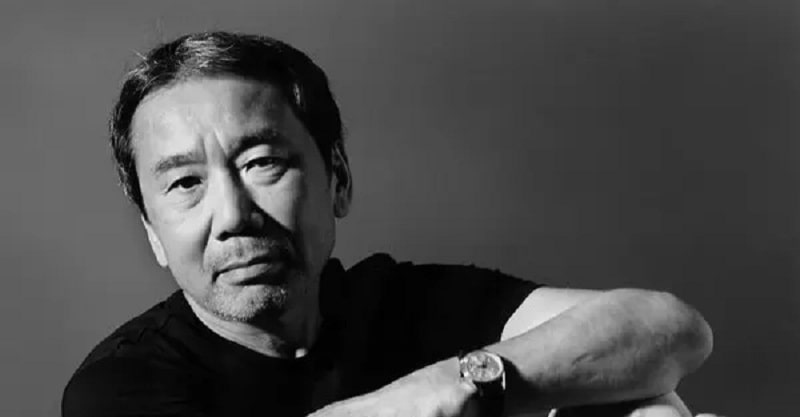
Haruki was born on January 12, 1949. is a renowned Japanese author and novelist. He is one of the most celebrated and internationally recognized contemporary writers, known for his unique blend of surrealism, magical realism, and everyday life in his works. Murakami’s novels often explore themes of loneliness, alienation, the human subconscious, and the search for identity.
Some of his most famous works include:
- “Norwegian Wood” (ノルウェイの森, Noruwei no Mori, 1987): This novel, set in Tokyo during the late 1960s, is a coming-of-age story that deals with love, loss, and mental health.
- “Kafka on the Shore” (海辺のカフカ, Umibe no Kafuka, 2002): it weaves together two narratives, one of a young boy named Kafka and another of an elderly man named Nakata, exploring themes of fate, destiny, and the mysterious.
- “1Q84” (いちきゅうはちよん, Ichi-Kyū-Hachi-Yon, 2009-2010): A complex and sprawling novel that incorporates elements of parallel worlds, cults, and a love story, set in a Tokyo with an alternate reality.
- “The Wind-Up Bird Chronicle” (ねじまき鳥クロニクル, Nejimaki-dori Kuronikuru, 1994-1995): This novel follows the protagonist, Toru Okada, as he embarks on a surreal and metaphysical journey to find his missing wife.
22. Chinua Achebe (1930-2013):
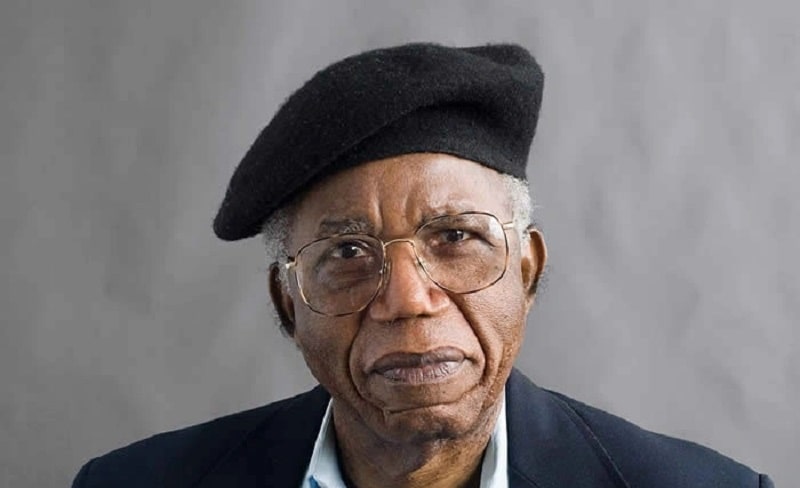
Chinua Achebe (1930-2013) was a Nigerian novelist, essayist, poet, and academic. He is widely regarded as one of the most important and influential African writers. Achebe’s works have had a profound impact on the field of African literature and the broader global literary landscape. He was not only a storyteller but also a cultural critic who examined the effects of colonialism and explored the complexities of African identity and culture. Some of his notable works include:
- “Things Fall Apart” (1958) – This novel is arguably Achebe’s most famous work and is considered a classic of world literature. It tells the story of Okonkwo, a proud Igbo warrior, as he grapples with the changes brought about by British colonialism and Christian missionaries in his village.
- “No Longer at Ease” (1960) – This novel follows the life of Obi Okonkwo, the grandson of Okonkwo from “Things Fall Apart,” as he struggles with the clash of traditional Igbo values and the pressures of modernity while working as a civil servant in colonial Nigeria.
- “Arrow of God” (1964) – This novel delves into the conflicts within a traditional Igbo community and the role of the priest Ezeulu, who faces challenges as he tries to maintain the community’s spiritual traditions in the face of colonial influence.
- “A Man of the People” (1966) – Achebe’s satire of post-independence politics in Nigeria explores corruption and disillusionment in the political sphere.
- “Anthills of the Savannah” (1987) – This novel examines the political landscape in post-colonial Africa and the challenges faced by a group of friends who are involved in government.
23. Edgar Allan Poe (1809-1849):
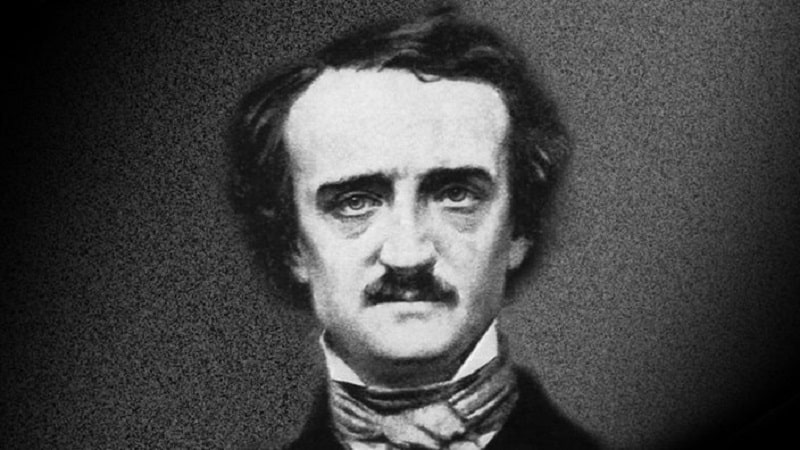
Edgar was an American writer and poet known for his contributions to the genres of Gothic fiction, macabre tales, and dark poetry. Poe’s works explored themes such as death, madness, mystery, and the supernatural.
Some of his most famous works include:
- “The Tell-Tale Heart” (1843) – A short story that explores the descent into madness of an unnamed narrator who insists on their sanity while describing a murder they committed.
- “The Fall of the House of Usher” (1839) – A Gothic short story that tells the eerie and unsettling tale of the last living members of the Usher family and the mysterious afflictions that plague them.
- “The Raven” (1845) – Perhaps Poe’s most famous poem, it tells the story of a man visited by a talking raven that repeatedly utters the word “Nevermore.” The poem is known for its melancholy and haunting atmosphere.
- “The Pit and the Pendulum” (1842) – A short story set during the Spanish Inquisition, in which the protagonist is subjected to various tortures while trying to escape from a deadly trap.
24. Marcel Proust (1871-1922):

Marcel was a French novelist, essayist, and critic, best known for his monumental work “In Search of Lost Time” (À la recherche du temps perdu, originally published in seven volumes between 1913 and 1927). Proust had an intricate and introspective writing style, and he explored themes of memory, time, love, and the human experience.
Some of Marcel Proust’s major works include:
- “Swann’s Way” (Du côté de chez Swann) – The first volume of “In Search of Lost Time,” published in 1913. It introduces the character Charles Swann and explores themes of memory and desire.
- “In the Shadow of Young Girls in Flower” (À l’ombre des jeunes filles en fleurs) – it was the second volume of “In Search of Lost Time,” for which Proust was awarded the Prix Goncourt in 1919. It delves into the narrator’s infatuation with Gilberte and later with Albertine.
- “The Guermantes Way” (Le Côté de Guermantes) – was third volume of the series, published in 1920, where the narrator gains entry into high society and encounters the Guermantes family.
25. J.R.R. Tolkien (1892-1973):
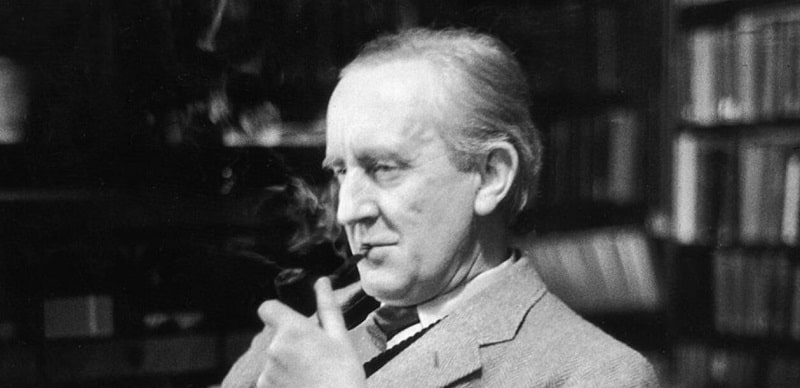
John Ronald Reuel Tolkien was a British writer and academic. One of his best was the epic high-fantasy novels, “The Lord of the Rings” trilogy and “The Hobbit”. Some of his work explored themes of heroism, friendship, the battle between good and evil, and the power of myth and language.
Some of his other works include:
- “The Silmarillion” (1977): This is a posthumously published collection of Tolkien’s mythopoeic writings that provide the backstory and history of Middle-earth. It includes stories of the creation of the world, the struggles of various races, and the tales of heroic characters.
- “The Children of Húrin” (2007): This book, also published after Tolkien’s death, is a novel-length expansion of one of the stories from “The Silmarillion.” It follows the tragic fate of the hero Túrin Turambar.
- “Unfinished Tales of Númenor and Middle-earth” (1980): This collection contains various unfinished and unpublished writings that offer further insights into the world of Middle-earth.
26. Mary Shelley (1797-1851):
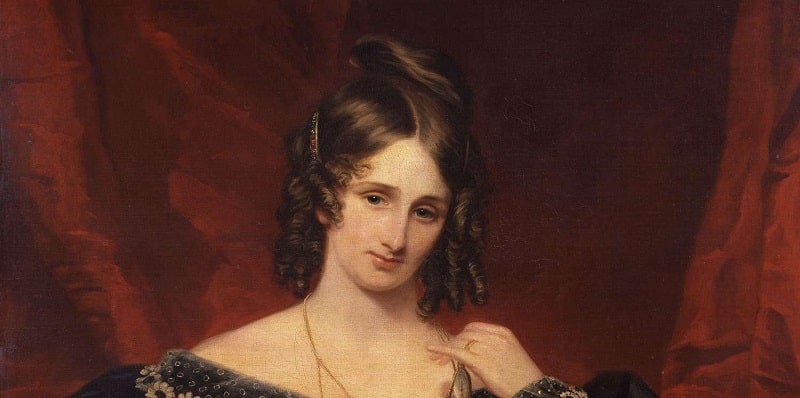
Mary Shelley was an influential English novelist and writer. She was born to two prominent intellectuals, Mary Wollstonecraft and William Godwin, she grew up surrounded by intellectual and literary circles, which undoubtedly influenced her literary pursuits.
Mary Shelley’s most renowned work, “Frankenstein,” was published in 1818 when she was just 21 years old. The novel is often considered the first science fiction novel and a seminal work in the Gothic genre. It tells the story of Victor Frankenstein, a young scientist who creates a grotesque and sentient creature in his pursuit of scientific discovery. The novel explores themes of ambition, responsibility, the consequences of scientific innovation, and the complex relationship between creator and creation.
27. Wole Soyinka (b. 1934):

Wole Soyinka, a Nigerian playwright, poet, and essayist. He was born in July 13, 1934. He was awarded the Nobel Prize in Literature in 1986. Soyinka’s most celebrated work is his play “Death and the King’s Horseman,” first published in 1975. The play is based on a real historical incident from Nigeria’s colonial era and is a powerful exploration of cultural clash and the clash between traditional beliefs and colonial values. It tells the story of Elesin, the king’s horseman, who is duty-bound to commit ritual suicide to accompany the recently deceased king to the afterlife. However, the British colonial officer, Pilkings, intervenes, leading to a clash of cultures and values.
Some of his notable works include:
- “A Dance of the Forests” (1960): This was Soyinka’s first major play and was written for Nigeria’s independence celebrations. It explores themes of identity and post-colonial Africa’s challenges.
- “The Man Died: Prison Notes” (1972): This is a collection of essays and reflections based on Soyinka’s experiences during his imprisonment by the Nigerian government. It addresses themes of political oppression and resistance.
- “Aké: The Years of Childhood” (1981): This is Soyinka’s memoir and a vivid account of his childhood in Nigeria. It provides insights into his early life and the cultural influences that shaped his worldview.
- “Ake: The Years of Childhood” (1981): An autobiographical work that delves into his formative years, offering a glimpse into his early life, family, and the cultural and political landscape of Nigeria.
Also read: 25 Benefits of Article Rewriting Tools
28. Gabriel Garcia Lorca (1898-1936):
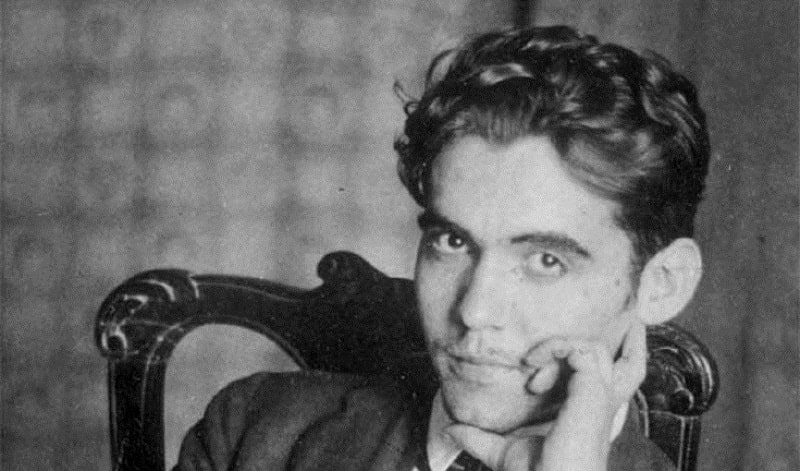
Gabriel García Lorca (1898-1936) was a prominent Spanish poet, playwright, and writer known for his profound contributions to both literature and the arts. Born in Fuente Vaqueros, a small town in Spain, he exhibited an early affinity for poetry and art, and his works continue to resonate globally, even decades after his tragic death.
García Lorca’s best-known work is “Blood Wedding” (“Bodas de sangre”), a play first published in 1933. It is part of his famous rural trilogy and is considered a cornerstone of Spanish-language theater. “Blood Wedding” explores themes of love, fate, tradition, and the harsh realities of rural life in Spain.
29. Salman Rushdie (b. 1947):

Salman is aa British-Indian author and he gained international recognition with his novel “Midnight’s Children,” which won the Booker Prize. His most celebrated work is “Midnight’s Children,” published in 1981, is a masterful blend of magical realism, historical fiction, and political allegory, and it is often considered one of the most significant works of contemporary world literature.
“Midnight’s Children” is a complex and sprawling narrative that tells the story of Saleem Sinai, a boy born at the exact moment of India’s independence from British rule on August 15, 1947. This unique timing endows him with extraordinary powers and connects him to the fate of his nation. Rushdie weaves a rich tapestry of Indian history, culture, and politics through the life of Saleem, making the novel a metaphor for the post-colonial experience in India. The book explores themes of identity, memory, destiny, and the intricate relationship between the individual and the collective.
30. Octavia E. Butler (1947-2006);
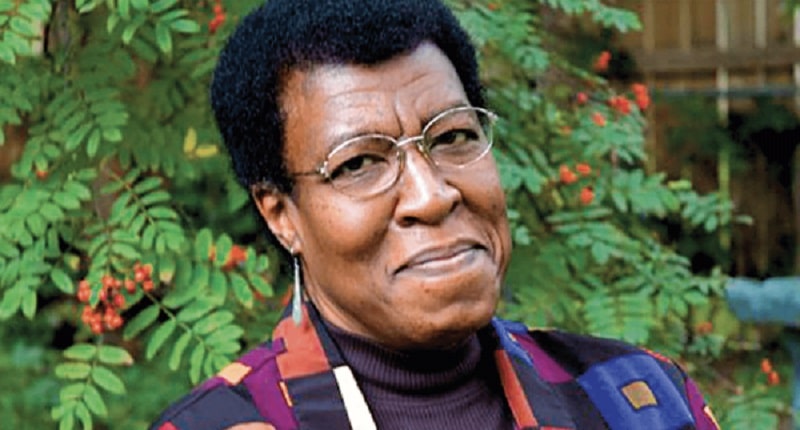
Octavia E. Butler was a groundbreaking African American science fiction writer. Her works, including the “Patternist” series and the “Parable” series, challenged traditional conventions in the genre. Butler’s exploration of race, gender, and social issues within the context of speculative fiction made her a trailblazer in the field and a significant influence on contemporary science fiction and Afrofuturism.
Some of her most notable works include:
- “Kindred” (1979) – A time-travel novel that tells the story of a contemporary African American woman who is transported back in time to the antebellum South, where she encounters her enslaved ancestors.
- “Parable of the Sower” (1993) – The first book in a series that explores a dystopian future in which societal collapse and environmental crises have created a harsh world. The story follows a young woman who develops a new religion and philosophy called “Earthseed” as a means of survival and hope.
- “Dawn” (1987) – The first book in the “Lilith’s Brood” trilogy (also known as the “Xenogenesis” series), which explores themes of genetic engineering, alien contact, and the future of humanity.
- “Patternmaster” (1976) – Part of her Patternist series, this novel explores a world in which telepathic and telekinetic powers shape the structure of society.
Also read: 15 Mistakes to Avoid When Writing College Research Paper
31. Ralph Waldo Emerson (1803-1882):
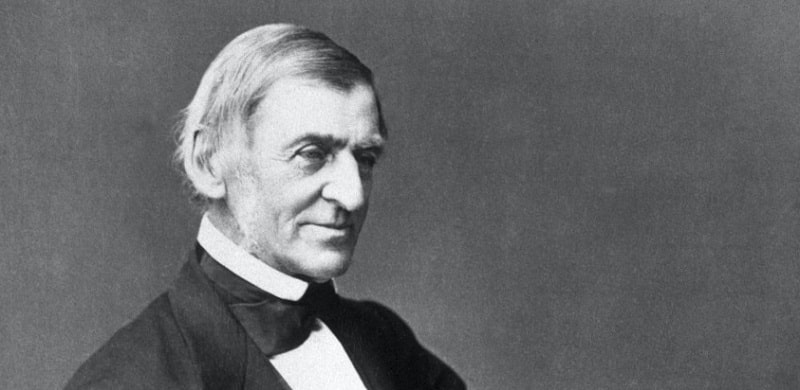
Ralph Waldo Emerson was an American essayist, lecturer, and philosopher known for his contributions to the Transcendentalist movement. His essays, such as “Self-Reliance” and “Nature,” have had a lasting impact on American literature and philosophy. Emerson’s writings emphasize individualism, self-reliance, and the connection between humanity and nature, making him a pivotal figure in American literary history.
Some of his most famous works and essays include:
- “Nature” (1836) – In this essay, Emerson laid out the foundation for transcendentalism and celebrated the beauty and spiritual significance of the natural world.
- “Self-Reliance” (1841) – This essay is perhaps Emerson’s most famous work and emphasizes the importance of self-reliance, individualism, and nonconformity.
- “The American Scholar” (1837) – This address to the Phi Beta Kappa Society at Harvard University encouraged intellectual independence and self-culture.
- “The Divinity School Address” (1838) – In this controversial lecture, Emerson criticized traditional religious practices and called for a more direct, personal relationship with the divine.
32. F. Scott Fitzgerald (1896-1940):
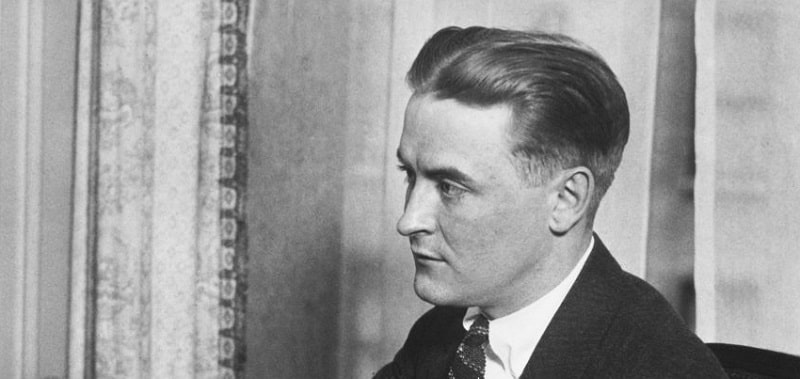
Francis Scott Key Fitzgerald was an American novelist and short story writer who made a significant contribution to American literature. One of his best novels was “The Great Gatsby,” which is considered one of the greatest works of American literature and a classic of the Jazz Age, a term he coined to describe the Roaring Twenties.
Fitzgerald was born in St. Paul, Minnesota, and he attended Princeton University, where he began writing and honing his literary skills. He served in the U.S. Army during World War I and then moved to New York City to pursue a career in writing.
Some of F. Scott Fitzgerald’s most famous works include:
- “The Great Gatsby” (1925) – This novel is set in the lavish and decadent world of 1920s Long Island, New York, and it tells the story of Jay Gatsby and his obsession with the elusive Daisy Buchanan. The novel explores themes of wealth, love, and the American Dream.
- “Tender Is the Night” (1934) – This novel examines the lives of a glamorous American couple, Dick and Nicole Diver, against the backdrop of the French Riviera and delves into the complexities of their relationship and the effects of wealth and mental illness.
- “This Side of Paradise” (1920) – Fitzgerald’s debut novel, which explores the life of Amory Blaine, a young man coming of age in post-World War I America, and reflects the cultural shifts of the time.
33. Jean-Paul Sartre (1905-1980):
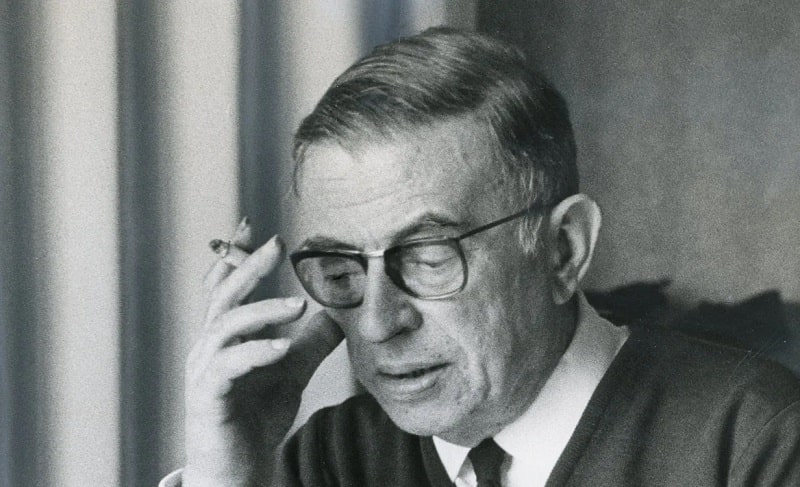
Jean-Paul Sartre, a French existentialist philosopher and writer, is known for his philosophical essays and plays like “No Exit” and “Being and Nothingness.” His works explore existentialism, freedom, and the concept of “bad faith.” Sartre’s writings have had a profound impact on philosophy, literature, and existential thought.
some his works include:
- “Being and Nothingness” (L’Être et le Néant, 1943) – This is Sartre’s major philosophical treatise and one of the foundational texts of existentialism. In it, he explores themes of existential freedom, consciousness, bad faith, and the concept of “being-in-itself” versus “being-for-itself.”
- “Nausea” (La Nausée, 1938) – This novel is considered one of the seminal works of existentialist literature. It tells the story of a writer named Antoine Roquentin who experiences a profound sense of existential nausea and alienation as he grapples with the absurdity of existence.
- “No Exit” (Huis Clos, 1944) – This is one of Sartre’s most famous plays. It is a one-act play in which three characters find themselves in a room in the afterlife and must confront their own flaws and existential choices.
34. James Baldwin (1924-1987):
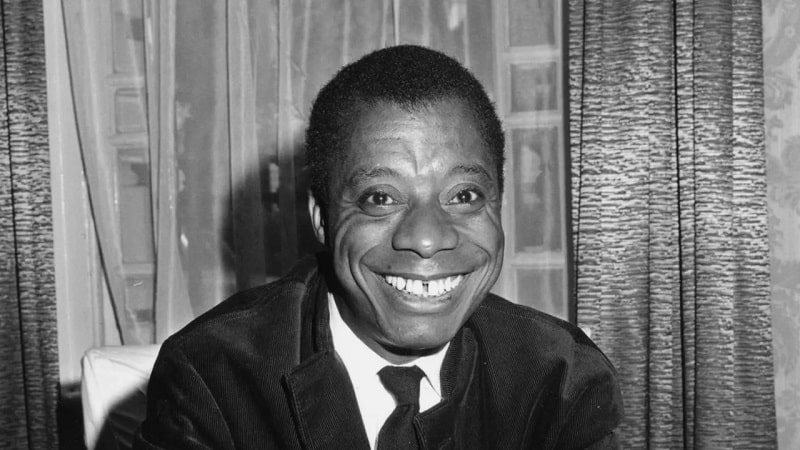
James Baldwin was an African-American writer, essayist, novelist, and social critic who played a significant role in addressing issues of race, identity, and civil rights in the United States. His works, including “Go Tell It on the Mountain” and “The Fire Next Time,” are still impactful and have made a significant contribution to American literature and civil rights discourse.
Some key aspects of James Baldwin’s life and work include:
- Literary Contributions: James Baldwin’s writing encompassed a wide range of genres, including novels, essays, short stories, and plays. Some of his most notable works include “Go Tell It on the Mountain” (1953), a semi-autobiographical novel that explores themes of religion and race, and “The Fire Next Time” (1963), a collection of essays that address the African American experience, racism, and the struggle for civil rights.
- Civil Rights Activism: Baldwin was an active participant in the civil rights movement and used his writing to shed light on the racial injustices and inequalities faced by African Americans. He was known for his powerful and eloquent speeches and essays that addressed these issues and called for social and political change.
- Exploration of Identity: Baldwin’s work often delved into questions of identity, sexuality, and the complexities of being both African American and gay. His writings challenged societal norms and prejudices related to race and sexual orientation.
Also read: Research Article – 7 Reasons Why Article Originality Matters
35. Jorge Luis Borges (1899-1986):
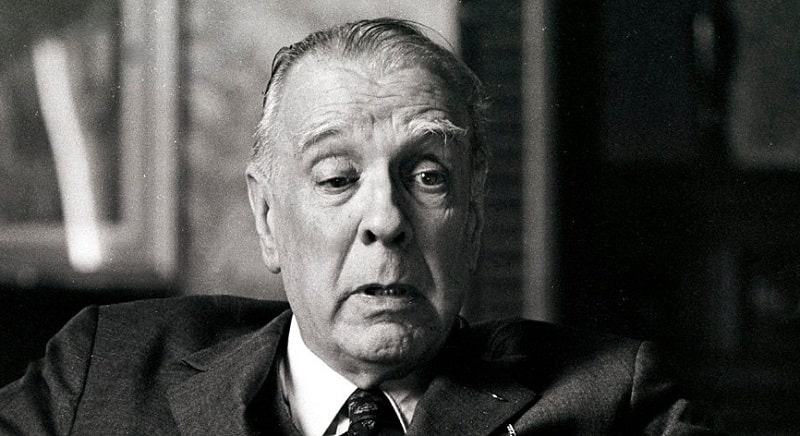
Jorge Luis Borges was an Argentine writer, poet, essayist, and literary critic who is widely regarded as one of the most influential and innovative figures in 20th-century world literature. He explored labyrinths, mirrors, and infinite realities which influenced many contemporary writers.
Some of his most famous and influential pieces:
- “The Library of Babel” (La Biblioteca de Babel) – In this short story, Borges presents a vast and labyrinthine library that contains all possible books, exploring themes of infinity, knowledge, and the limitations of human understanding.
- “The Garden of Forking Paths” (El jardín de los senderos que se bifurcan) – This short story combines espionage and philosophy, exploring the idea of multiple realities and the consequences of choices.
- “Ficciones” (1944) – A collection of Borges’ most famous short stories, including “The Library of Babel” and “The Garden of Forking Paths.” The book is considered one of the cornerstones of Borges’ literary legacy.
- “Labyrinths” (1962) – Another collection of Borges’ short stories, essays, and poems that includes many of his most famous works. It introduced Borges to English-speaking audiences and solidified his reputation as a literary master.
36. Zora Neale Hurston (1891-1960):
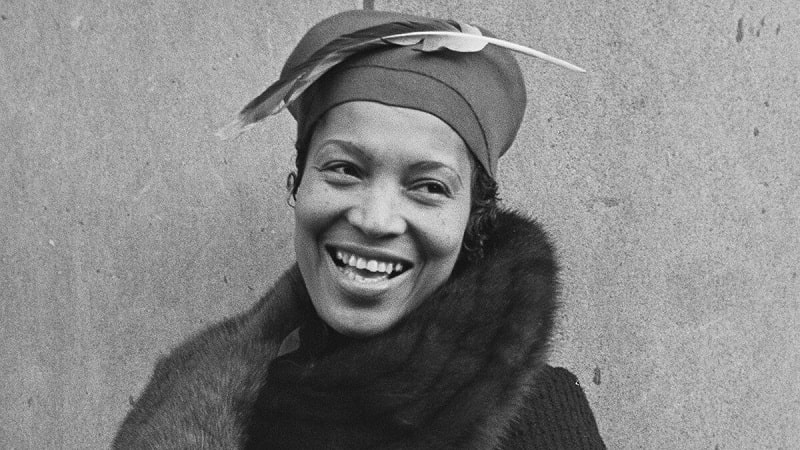
Zora Neale Hurston was an American author and anthropologist and is celebrated for her contributions to African American literature and the Harlem Renaissance. Her most famous work, “Their Eyes Were Watching God,” explores themes of identity, race, and self-discovery. Hurston’s writings continue to be appreciated for their cultural insight and literary significance.
Zora Neale Hurston produced a variety of literary works, including novels, short stories, essays, and anthropological research. Some of her notable works include:
- “Their Eyes Were Watching God” (1937) – This novel is widely considered Hurston’s masterpiece and a classic of African American literature. It tells the story of Janie Crawford and her journey to self-discovery and independence. The novel explores themes of love, identity, and women’s experiences.
- “Jonah’s Gourd Vine” (1934) – This novel was Hurston’s first published work and is based on her parents’ lives. It examines the struggles and triumphs of a preacher in the American South.
- “Mules and Men” (1935) – This is a collection of folklore and folktales that Hurston collected during her anthropological fieldwork, particularly in Florida and the American South. It offers a rich and authentic portrayal of African American oral traditions and cultural practices.
37. J.D. Salinger (1919-2010):
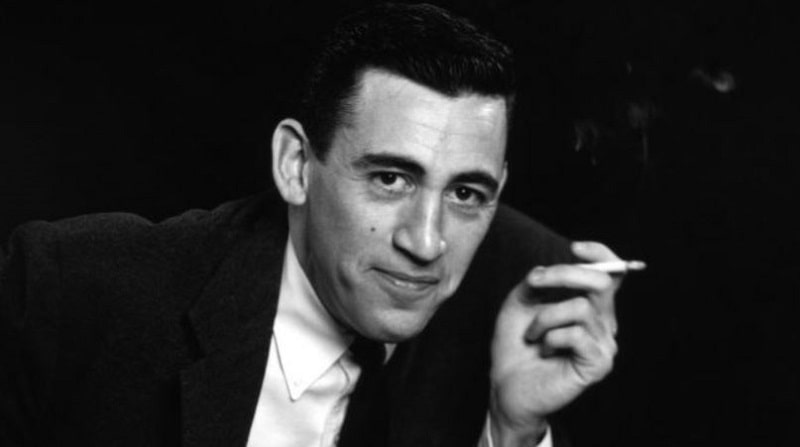
Jerome David Salinger was an American author. He was born on January 1, 1919, in New York City, and he passed away on January 27, 2010. He was known for his novel “The Catcher in the Rye,” which was published in 1951. “The Catcher in the Rye” is one of the most famous and widely read novels of the 20th century. It tells the story of a young man named Holden Caulfield, who narrates his experiences in New York City and his struggle with the phoniness and superficiality he perceives in the adult world.
Salinger’s work was often associated with themes of adolescent alienation and the search for authenticity. He was known for his reclusive and private lifestyle, and he became increasingly withdrawn from public life in the years following the success of “The Catcher in the Rye.” Despite his limited public appearances, Salinger continued to write and publish, though much of his later work remained unpublished during his lifetime.
38. Ralph Ellison (1913-1994):
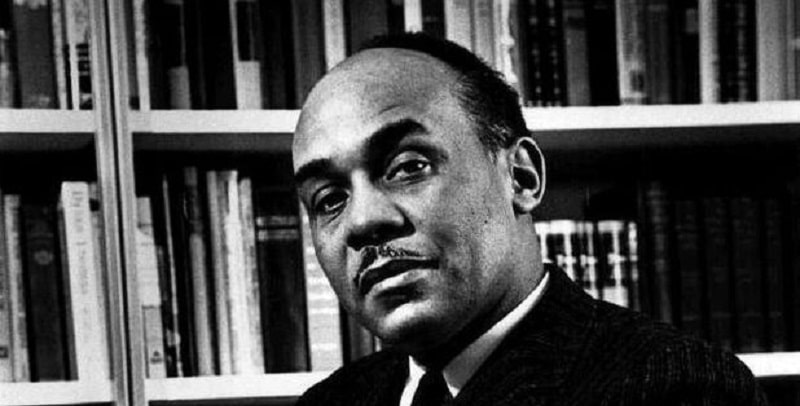
Ralph Ellison was an influential African American author and essayist known for his novel “Invisible Man,” which was published in 1952. He was born on March 1, 1913, in Oklahoma City, Oklahoma, and he passed away on April 16, 1994. Ellison is considered one of the most important and celebrated African-American writers of the 20th century.
“Invisible Man” is his most well-known work and is a seminal piece of American literature. The novel explores themes of identity, race, and the complexities of African-American life in the United States. It tells the story of an unnamed African-American narrator who grapples with invisibility, both literal and metaphorical, as he navigates a racially divided and discriminatory society.
39. Dr. Seuss (Theodor Seuss Geisel) (1904-1991):
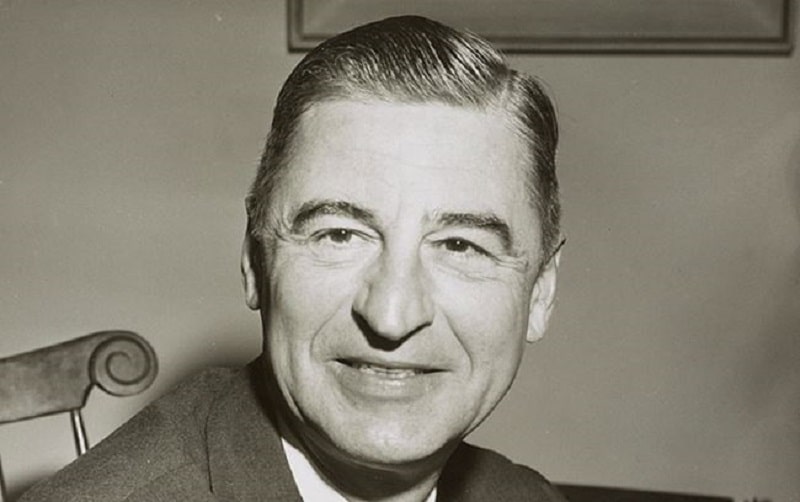
George Orwell is renowned for his thought-provoking novels and essays that explore themes of totalitarianism, propaganda, and the erosion of individual freedom. as born on March 2, 1904. He was born in Springfield, Massachusetts, USA. His works, such as “1984” and “Animal Farm,” remain relevant as powerful critiques of political oppression and social control. Orwell’s writing has had a lasting impact on political and social discourse.
Some of his most popular and enduring works include:
- “The Cat in the Hat”
- “Green Eggs and Ham”
- “How the Grinch Stole Christmas!”
- “Horton Hears a Who!”
- “One Fish Two Fish Red Fish Blue Fish”
- “Oh, the Places You’ll Go!”
40. Margaret Atwood (b. 1939):
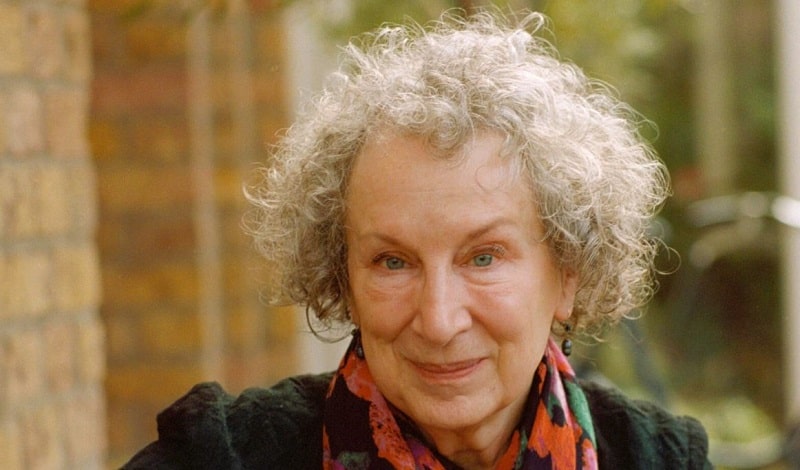
Margaret Atwood is a Canadian author who has made an impact in the area of speculative fiction and dystopian novels. Her novel “The Handmaid’s Tale” has become a modern classic, exploring themes of feminism, totalitarianism, and reproductive rights. Atwood’s writing continues to be thought-provoking and socially relevant.
Some of her most well-known works include:
- “The Handmaid’s Tale” (1985): This dystopian novel, set in a theocratic and oppressive future society, has become a classic and was adapted into a successful television series.
- “Alias Grace” (1996): A historical novel based on a true story, exploring the life of a convicted murderer in 19th-century Canada.
- “The Blind Assassin” (2000): This novel won the Man Booker Prize and is known for its intricate storytelling and layered narrative.
